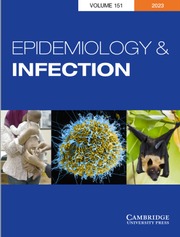Article contents
Some in-vitro characters of the subspecies of Mycoplasma mycoides
Published online by Cambridge University Press: 25 March 2010
Summary
So-called LC strains of Mycoplasma mycoides subsp. mycoides and, where appropriate, SC strains, were examined, together with M. mycoides subsp. capri strains, by growth, fermentation, and antibiotic-sensitivity tests.
Growth curves in BVF-OS medium showed that, from the 6th until at least the 19th day of incubation, strain Mankefår 2833 had a viable count strikingly higher than that of any other LC strain. Its robust growth properties may explain its ability – unusual among LC strains – to produce mycoplasmaemia readily in mice. Strain 143–A66 Conn, also shown by earlier experiments in mice to possess unusual properties, lost viability more rapidly than any other LC strain between the 13th and 19th days of incubation. The viable count of a subsp. capri strain was considerably lower than that of any LC strain for much of the period between days 6 and 19.
In fermentation tests with 27 substrates and sensitivity tests with 11 antibiotics the strains gave results that, in all but the following respects, were uniform. Sorbitol was fermented to varying degrees by all the LC and subsp. capri strains tested but was unaffected by the SC strains. The LC and subsp. capri strains were in general more resistant than the SC strains to streptomycin. The growth of the LC strains, much more than that of the other strains, was greatly stimulated by the presence of fermentable substrate.
Information
- Type
- Research Article
- Information
- Copyright
- Copyright © Cambridge University Press 1982
References
REFERENCES
- 9
- Cited by

